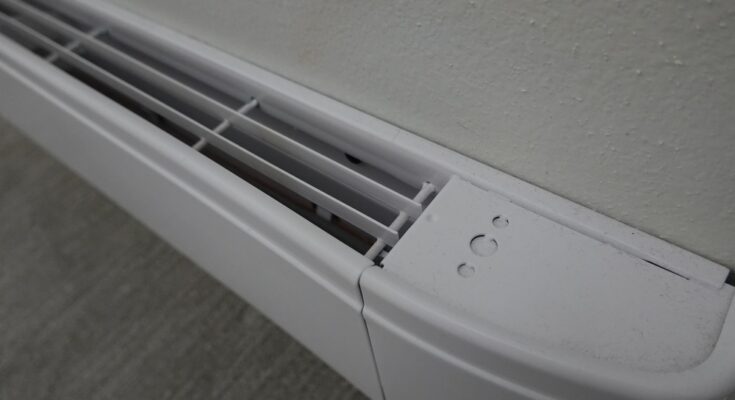Baseboard heaters aren’t necessarily a popular heating solution, but they have their merit. Baseboard heaters could be right for your home, but before you commit, you should take a look at their pros and cons. Below, we analyze the benefits and drawbacks of these devices, as well as reveal how the type you choose—hydronic or electric—should influence your decision.
The Pros of Baseboard Heaters
One of the biggest attractions of baseboard heaters is their straightforward design. They don’t require ductwork, which makes them an excellent option for homes without forced-air systems. You can install them room by room, giving you more control over your home’s heating. For example, if you use your home office all day but rarely step into the guest room, you can choose to heat only the spaces you need.
Baseboard heaters are also fairly noiseless. Unlike some forced-air systems that can produce distracting background noise, these heaters should operate quietly when maintained well, which is a definite perk for bedrooms or workspaces. Additionally, they’re relatively easy to install and maintain compared to duct systems.
The Cons of Baseboard Heaters
Despite their benefits, baseboard heaters have a few downsides you should consider. First off, they’re not the most energy-efficient option available. Electric baseboard heaters, in particular, can land you with high energy bills in the winter.
Baseboard heaters also take up inconvenient wall space. Because they need to be placed along baseboards, they can limit how you’re able to arrange furniture. You’ll need to leave space around the heaters to avoid blocking airflow and creating a fire hazard.
Hydronic vs. Electric Baseboard Heaters
We have taken a look at the general pros and cons of baseboard heaters, but we should note that the type you get is important to consider. The two main designs are electric and hydronic.
Electric baseboard heaters use heating elements to warm the air, which then rises to heat the room. As we already mentioned, this model increases your home’s energy use and bills. Electric varieties also tend to heat up quickly but cool down just as fast once turned off, making them less efficient for long-term use.
Hydronic baseboard heaters, on the other hand, use heated liquid (such as water or oil) to produce warmth. These take longer to heat up but retain heat for a longer time after being turned off. They also distribute heat more evenly.
However, their initial cost is typically higher than electric models. Plus, you’ll have to keep hydronic baseboard heater safety tips in mind, as they’re easier to burn yourself on.
Is a Baseboard Heater Right for You?
Baseboard heaters are a solid choice for homeowners looking for a simple, zone-specific heating solution. While they may not be the most energy-efficient option out there, they still have a place in many homes. Now that you know the pros and cons and the difference between hydronic and electric models, you can choose a heater that best fits your needs.



